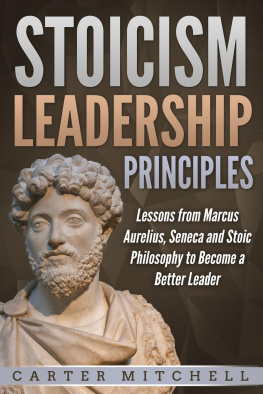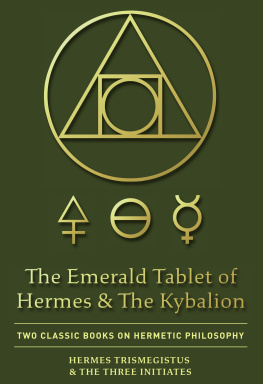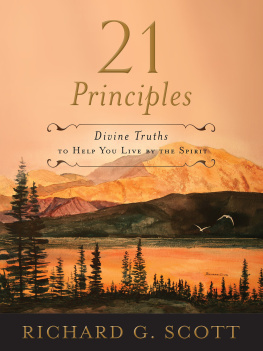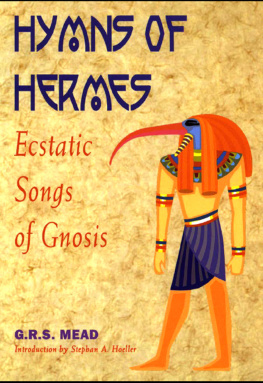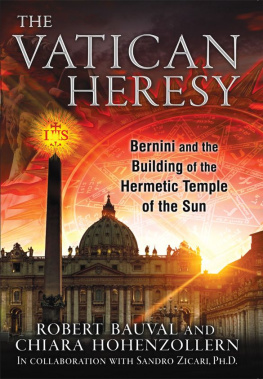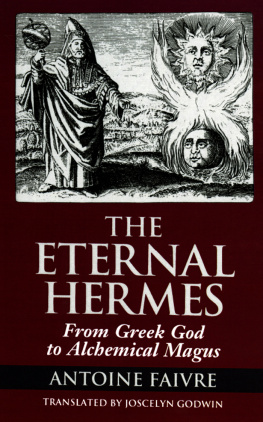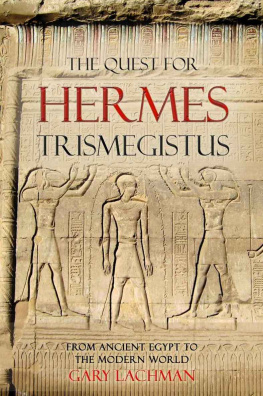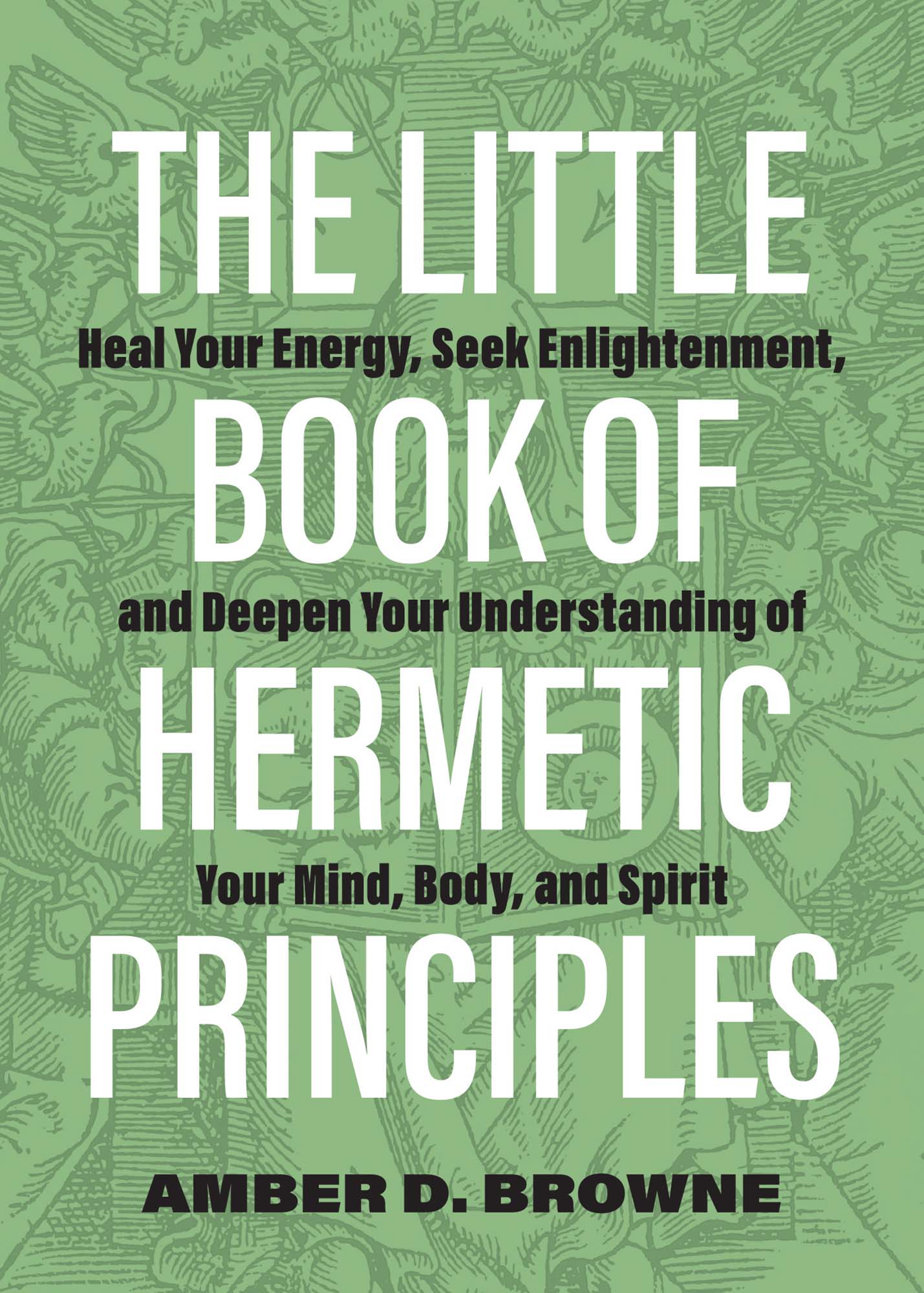Contents
Guide
The Little Book of Hermetic Principles
Heal Your Energy, Seek Enlightenment, and Deepen Your Understanding of Your Mind, Body, and Spirit
Amber D. Browne
This book is dedicated to my husband, Tristan, for encouraging me to pursue my passion and purpose, and to our awesome children, Mia and Dane, for their constant acceptance and support.
SECTION I HERMES TRISMEGISTUS AND HERMETICISM
The allure of the unknown impels many to begin a journey toward mindfulness and enlightenment. Those who seek the meaning of life and their purpose in this world often grasp for knowledge through religion, the trial and error of lifes events, meditation, or other means. The Little Book of Hermetic Principles delves into seven fundamental truths found throughout numerous cultures, religions, and belief systems across the globe and discusses how to incorporate these principles into your own life to discover your purpose and find fulfillment.
In this section, you will learn about the credited author of the Hermetic philosophyHermes Trismegistus, also known as the Thrice-Greatestas well as the history and inner workings of Hermeticism, and a few of Trismegistus written works. The Kybalion, published in 1908, breaks down Trismegistus purported teachings into seven Hermetic principles, which are profound explanations of enlightenment and becoming one with God, or the One. The Little Book of Hermetic Principles outlines these principles and provides insight into incorporating this ancient knowledge into daily life. These principles guide a person toward enlightenment, or awarenessawareness between the self, others, and the natural world. Once you experience this awareness, you can then discover the true connectedness between everyone and everything on this planet and beyond.
Chapter 1 INTRODUCTION
This is a story about a man, a god, a priest, a sageHermes Trismegistusand his purported writings and teachings. Hermeticism, attributed to Trismegistus, is an ancient body of knowledge that was passed down by word of mouth, from teacher to student, several millennia ago. The beliefs inherent to these teachings are included in a range of cultures and monotheistic religions across the globe. Many people believe in one true God, the Source, the Creator, or a higher power; many believe that everything happens for a reason and that there is no such thing as coincidence; and many believe that energy is an integral part of everything. The Little Book of Hermetic Principles delves into this ancient information and provides an easy-to-understand overview to the modern reader. It also explains how to come to a deeper understanding of the seven Hermetic principles, ultimately allowing yourself to heal your energy, seek enlightenment, and deepen your understanding of mind, body, and spirit.
In the beginning of the period that the Gregorian calendar calls the third millennium (the years 2001 to 3000), many have endured difficulty after difficulty. The COVID-19 pandemic and consequent worldwide turmoil have caused people to lose faith in humanity. Adults and children face challenges physically, mentally, and emotionally. Humanity must do better, and with this book, you can discover ancient information that might already hold a place in your belief system but might not be fully integrated into your psyche. The Little Book of Hermetic Principles will help you realize that although each person is an individual, everyone is in this life together, and all people are part of a greater planthe bigger picture. This book shares the philosophical, religious, and scientific proof of these universal principles, all while helping you embark on a journey of self-discovery.
Chapter 2 WHO WAS HERMES TRISMEGISTUS?
Hermes Trismegistus, also known as the Thrice-Greatest, is credited with a number of ancient texts, which include philosophical, technical, and mystical teachings. Trismegistus is a mystery. Some believe he lived before the time of Moses. Others believe he was a succession of teachers or scribes who took the name to continue the philosophical work. Still others believe he never existed in human form on this earth. Most theorists have concluded, however, that Trismegistus lived in Egypt between 100 CE and 300 CE, but many of his philosophies were in practice for hundreds of years before his birth.
Hermetic philosophies are believed to have originated shortly after the age of Greek mythology. These philosophies first came to light in written word around 750 BCE, with accounts in Hesiods poem Theogony and Homers epics TheIliad and The Odyssey. Trismegistus has been referred to as the Greek god Hermes, the god of communication, but also as the Egyptian god Thoth, god of knowledge and language, who was worshipped in Egyptian mythology several thousand years before Greek mythology was recognized.
How is it that one man is identified with two different deities? The Roman Empire conquered Egypt in 30 BCE, and the Romans allowed the existence and discussion of different religions of the time. Both the Greek god Hermes, later known in Roman mythology as Mercury, and the Egyptian god Thoth ruled over knowledge and communication, so these deities were associated with each other and with the author of the Hermetic writings. Trismegistus is ultimately known as a theologian and a philosopher. According to the preface written by translator John D. Chambers in The Divine Pymander and Other Writings of Hermes Trismegistus, Trismegistus was considered to be the impersonation of the religion, art, learning, and sacerdotal discipline of the Egyptian priesthood.
Texts accredited to Trismegistus were reportedly discovered sometime between 100 CE and 300 CE. They have been translated numerous times over the past two thousand years. Manly P. Hall, Freemason and author of The Secret Teachings of All Ages, suggests Hermes Trismegistus was one of three things: a divinity accepted during the Greek period of Egyptian philosophy, a divinity represented by embodiments in priests, authors, and scribes of the time, or a ritualistic figure. Some early writers recognized Trismegistus as the deity of the universal mind. In a recorded lecture, Hall states that these writers took the position that mind is the author of all works, therefore, that behind the human author of every product is the universal mind who might well therefore be regarded as the genuine compiler, writer, or editor of the work. Thus, a work could be dedicated to the universal mind as its true author.
Although Trismegistus written works do not refer to specific religions, they include the belief that everything is created by the Mind of God, and that within everything exists All-Father Mind, Life, and Light: Whatever then doth live, oweth its immortality unto the Mind, and most of all doth man, he who is both recipient of God, and co-essential with Him.
Trismegistus profound teachings were once secret, known only to those in power and to masters of Hermeticism. Today they are available to all who wish to learn. His writings on philosophy, science, the stars, and beyond are outlined in The Little Book of Hermetic Principles, giving you the opportunity to practice his teachings, whether he was a man or several men, an embodiment of a deity, or a deity or deities himself.


